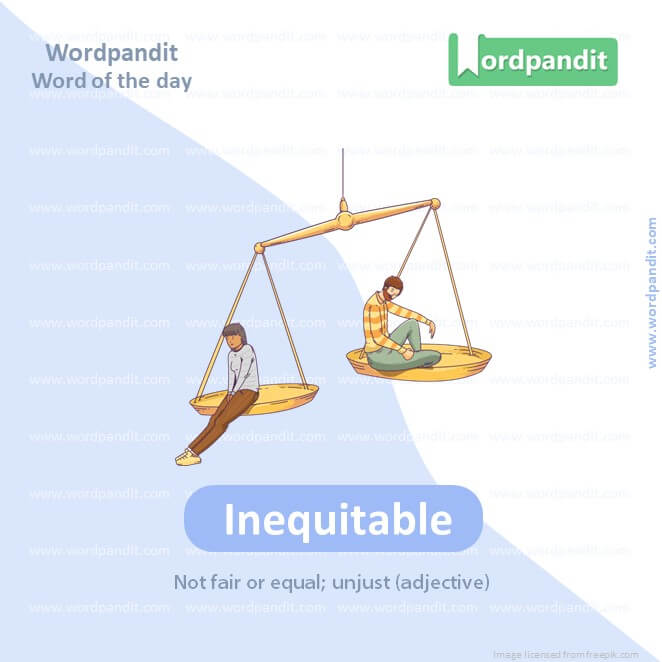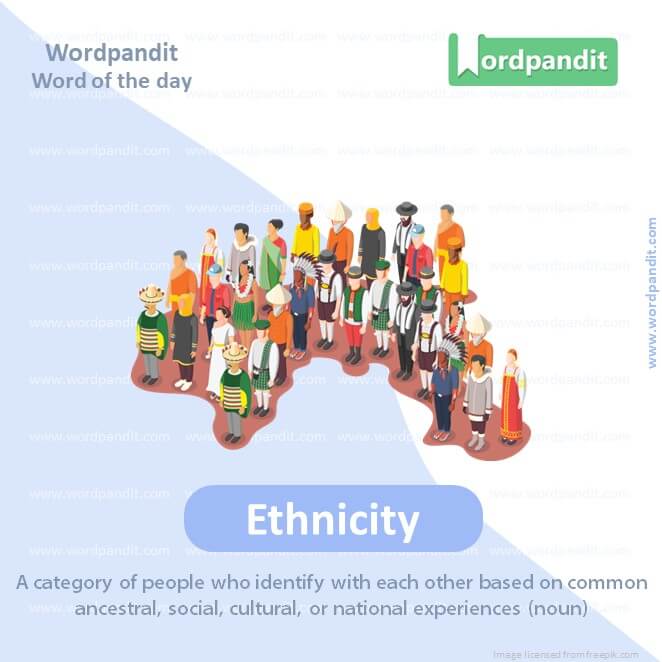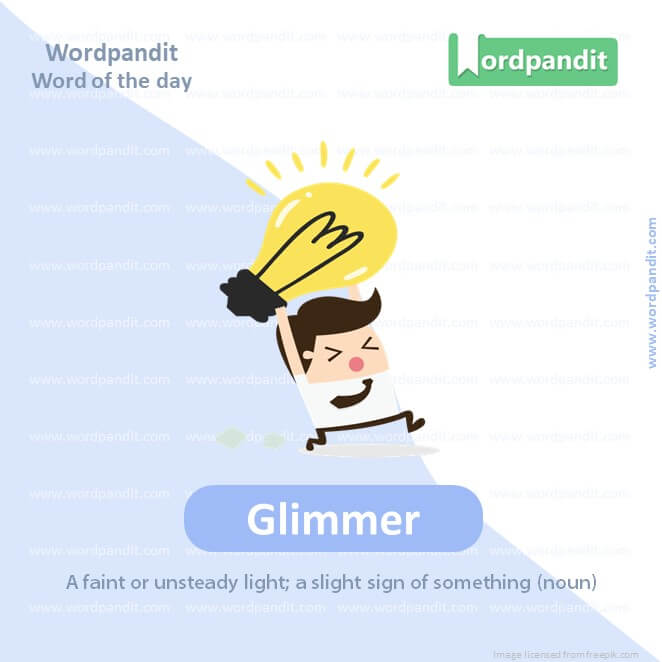Daily Vocabulary Words: List of Daily Used Words in Leading International Newspapers
Hi there. Welcome to this special section @ Wordpandit.
Our endeavour here is very simple: to highlight important daily vocabulary words, which you would come across in leading newspapers in the country. We have included the following newspapers in our selection:
• The New York Times
• The Washington Post
• Scientific American
• BBC
• The Guardian
• Psychology Today
• Wall Street Journal
• The Economist
We are putting in extensive work for developing your vocabulary. All you have got to do is be regular with this section and check out this post on a daily basis. This is your repository of words that are commonly used and essentially, we are posting a list of daily used words. Hence, this has significant practical application as it teaches you words that are used commonly in leading publications mentioned above.
Visit the website daily to learn words from leading international newspapers.
WORD-1: Antiquated
CONTEXT: It is absurd that America’s tax system is so antiquated and complicated that most people must pay someone else to help them pay the government.
SOURCE: New York Times
EXPLANATORY PARAGRAPH: Imagine you have a toy that your grandparents played with when they were little. It’s very old and not like the toys you have today. That old toy is what we call “antiquated.” It means it’s from a long time ago and may not be used much anymore because we have newer things now.
MEANING: Belonging to a period long past, making it outdated or no longer used (adjective).
PRONUNCIATION: an-ti-kway-ted
SYNONYMS: Outdated, Obsolete, Ancient, Old-fashioned, Archaic
USAGE EXAMPLES:
1. The antiquated computer could barely run modern software.
2. She replaced her antiquated phone with a new model.
3. The laws were so antiquated that they needed serious updating.
4. Their kitchen appliances were antiquated and inefficient.

WORD-2: Inequitable
CONTEXT: They are also much more likely to die — because of drugs, guns, accidents and an inequitable health care system.
SOURCE: New York Times
EXPLANATORY PARAGRAPH: Think about when you and a friend have cookies. If you get only one cookie and your friend gets three, that’s not fair, right? When things are not fair like this, we say it’s “inequitable.” It means someone is not being treated equally or fairly.
MEANING: Not fair or equal; unjust (adjective).
PRONUNCIATION: in-ek-wi-tuh-bul
SYNONYMS: Unfair, Unjust, Biased, Unequal, Partial
USAGE EXAMPLES:
1. The inequitable distribution of food led to protests.
2. It was an inequitable situation where some worked hard but got paid less.
3. The policy was criticized for being inequitable.
4. Teachers strive to avoid inequitable treatment of students.

WORD-3: Overwhelmingly
CONTEXT: I mentioned earlier, overwhelmingly favor Trump over Biden to handle immigration and the southern border.
SOURCE: New York Times
EXPLANATORY PARAGRAPH: Imagine you’re in a room filled with your favorite balloons, so many that you can barely see the floor. That feeling of having so much of something that it’s almost too much to handle is called “overwhelmingly.” It means something is very, very big or a lot in a way that makes it hard to think about anything else.
MEANING: In an extremely strong or great manner (adverb).
PRONUNCIATION: oh-ver-wel-ming-lee
SYNONYMS: Extremely, Profoundly, Immensely, Predominantly, Vastly
USAGE EXAMPLES:
1. She won the vote overwhelmingly.
2. The evidence was overwhelmingly in favor of the new theory.
3. The movie was overwhelmingly popular.
4. The team was overwhelmingly better than their opponents.

WORD-4: Ethnicity
CONTEXT: Just before the court released its decision, a June 2023 Pew survey found that 50 percent of voters disapprove of “selective colleges and universities taking race and ethnicity into account in admissions decisions in order to increase the racial and ethnic diversity as the school,” while 33 percent “approve.”
SOURCE: New York Times
EXPLANATORY PARAGRAPH: Think about all the different places people come from, like your friend from school who might celebrate different holidays or eat different foods from you. “Ethnicity” is a word we use to talk about these differences in where we come from, the traditions we follow, and the languages we might speak. It’s what makes each group of people special.
MEANING: A category of people who identify with each other based on common ancestral, social, cultural, or national experiences (noun).
PRONUNCIATION: eth-nis-i-tee
SYNONYMS: Heritage, Culture, Ancestry, Race, Nationality
USAGE EXAMPLES:
1. People from different ethnicities came together for the festival.
2. The survey included questions about ethnicity to understand diversity.
3. She is proud of her mixed ethnicity.
4. The country is home to many different ethnicities.

WORD-5: Glimmer
CONTEXT: A glimmer of hope for Biden emerged toward the end of the survey.
SOURCE: New York Times
EXPLANATORY PARAGRAPH: Imagine looking at a small, shiny star twinkling in the night sky. That tiny, soft light that seems to blink at you is what we call a “glimmer.” It’s like a little sparkle that catches your eye when it’s a bit dark around.
MEANING: A faint or unsteady light; a slight sign of something (noun).
PRONUNCIATION: glim-er
SYNONYMS: Sparkle, Gleam, Twinkle, Flicker, Shimmer
USAGE EXAMPLES:
1. There was a glimmer of hope in her eyes.
2. The moonlight gave a soft glimmer on the water.
3. He saw a glimmer in the dark alley and went to investigate.
4. The necklace seemed to glimmer in the candlelight.
WORD-6: Succinctly
CONTEXT: A public relations, political consulting and media firm, succinctly voiced his optimism in an email:
SOURCE: New York Times
EXPLANATORY PARAGRAPH: When you tell a story but only use a few words to make it short and clear, that’s being “succinctly.” It’s like when you’re asked not to ramble and get straight to the point with just the important details.
MEANING: In a brief and clearly expressed manner (adverb).
PRONUNCIATION: suh-sinkt-lee
SYNONYMS: Concisely, Briefly, Clearly, To the point, Compact
USAGE EXAMPLES:
1. She explained the rules succinctly.
2. The teacher asked for a succinctly written essay.
3. He summarized the argument succinctly.
4. The instructions were given succinctly and were easy to follow.

WORD-7: Mortality
CONTEXT: If the United States simply had the same mortality rates for young people as the rest of the rich world, we would annually save the lives of at least 40,000 Americans age 19 and under, according to Steven Woolf, a population health expert at Virginia Commonwealth University
SOURCE: New York Times
EXPLANATORY PARAGRAPH: Think about how everything, like plants, animals, and people, can’t live forever. “Mortality” is the word we use to talk about the fact that everything eventually comes to an end or can die. It’s a way of saying that living forever isn’t something that happens.
MEANING: The state of being subject to death (noun).
PRONUNCIATION: mor-tal-i-tee
SYNONYMS: Death, Fatality, Mortalness, Transience, Perishability
USAGE EXAMPLES:
1. The study focused on the mortality rates of different species.
2. Advances in medicine have reduced child mortality.
3. The mortality of life is a common theme in literature.
4. The disaster’s mortality rate was shockingly high.
WORD-8: Denounced
CONTEXT: The invidious, hypocritical and historically illiterate way in which it is often denounced in anti-Israel polemics and protests.
SOURCE: New York Times
EXPLANATORY PARAGRAPH: Imagine if someone did something very wrong, like breaking a rule on purpose, and everyone decided to say out loud that it was not okay. “Denounced” means to speak out against something that someone did because it was wrong or bad, letting others know you don’t agree with it.
MEANING: Publicly declare to be wrong or evil (verb).
PRONUNCIATION: de-nounst
SYNONYMS: Condemn, Criticize, Attack, Censure, Repudiate
USAGE EXAMPLES:
1. The politician was denounced for his actions.
2. The community denounced the unfair law.
3. The act was denounced as immoral.
4. He was denounced for spreading false information.
WORD-9: Legitimately
CONTEXT: Mr. Trump’s lawyers legitimately ask what counts as a disqualifying insurrection.
SOURCE: New York Times
EXPLANATORY PARAGRAPH: Think about playing a game where you follow all the rules and play fair. That’s like doing something “legitimately.” It means you’re doing it the right way, following all the rules, and being honest about it.
MEANING: In a way that conforms to the law or to rules; genuinely (adverb).
PRONUNCIATION: le-jit-i-muh-tlee
SYNONYMS: Lawfully, Honestly, Fairly, Properly, Justly
USAGE EXAMPLES:
1. She legitimately won the competition.
2. The business operates legitimately.
3. He was legitimately concerned for her safety.
4. The claim was found to be legitimately made.
WORD-10: Overregulate
CONTEXT: I don’t want to overregulate, but tech companies need oversight as they monetize our children.
SOURCE: New York Times
EXPLANATORY PARAGRAPH: Imagine if there were so many rules about how to play with your toys that it wasn’t fun anymore. That’s what “overregulate” means. It’s when there are too many rules or laws about something, making it hard to enjoy or do.
MEANING: To regulate something to an excessive degree; imposing too many rules or restrictions (verb).
PRONUNCIATION: oh-ver-reg-yuh-late
SYNONYMS: Over-control, Micromanage, Restrict heavily, Oversee too much, Over-govern
USAGE EXAMPLES:
1. The industry complained it was being overregulated.
2. Overregulate businesses can stifle innovation.
3. There’s a concern that overregulating this area might do more harm than good.
4. The debate focused on whether to overregulate internet privacy.
Vocabulary Pronunciation
The dance of language learning comprises two inseparable partners: vocabulary and pronunciation. The rhythm of this dance is best enjoyed when both partners are in sync. Essentially, mastering ‘vocabulary pronunciation’ is key to expressing and understanding a language effectively. However, what is the ideal approach to learn ‘vocabulary pronunciation’?
Firstly, the process of learning ‘vocabulary pronunciation’ isn’t a sprint. Rather, it’s a marathon where consistency is vital. A gradual and steady pace of learning new words and their pronunciation offers enough time to effectively practice and commit them to memory.
Secondly, to master ‘vocabulary pronunciation’, go beyond written text. Dwell in the world of audible language, such as documentaries, podcasts, music, or language-learning apps that provide pronunciation guides. These memorable auditory experiences aid in refining your ‘vocabulary pronunciation’ and offer a glimpse into the authentic sounds of the language.
Another beneficial strategy for learning ‘vocabulary pronunciation’ involves the use of phonetic transcriptions. They offer systematic approaches to understanding the sound system of a language, thereby improving pronunciation.
Most importantly, do not shy away from practicing your ‘vocabulary pronunciation’. Be it in a language exchange meeting, a conversation with a native speaker, or even a self-recording session, active verbalization massively boosts your pronunciation prowess.
Lastly, always remember to train your ears as much as you train your tongue. Listening carefully to native speakers helps you capture the subtleties of ‘vocabulary pronunciation’, contributing to better delivery when you speak.
In conclusion, mastering ‘vocabulary pronunciation’ is not an overnight journey. It’s a process of intentional practice, sustained listening, conscientious reflection and active usage. As you chart this course with diligence and patience, you will witness your ‘vocabulary pronunciation’ skills blossom, leading you to communicate with greater fluency and confidence.













